|
|
|
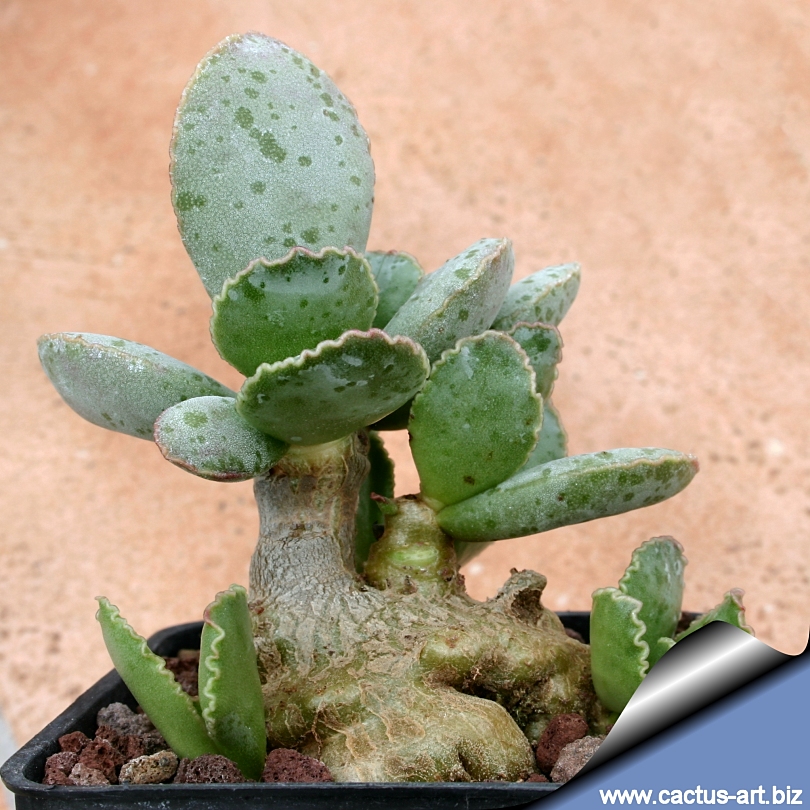
Adromischus schuldtianus
A very pretty tiny, compact, shrub, building
a caudex.
|
|
Description: A very pretty tiny, compact,
shrub, building a caudex, variable in size up to 7 cm tall and 15 cm in
diameter.
Stem: Short, erect, tapering, basally tuberose up to 4 cm or
more, grey to grey green with peeling bark, distal parts 8-10 mm.
Younger leave bearing branches 5-7 mm in diameter.
Rottstock (Caudex): Very thickened.
Roots: Fibrous.
Leaves: Rounded, obovate dorsiventrally compressed, easily
caducous up to 2.5 cm long, 1.2 cm wide (thickness 0,3-0,7 cm, dusty
white-green mottled with few translucent grey-green to maroon spots or
unspotted. Margin acute in upper part horny, undulating or crimped and
often with a maroon- purplish tinge, upper face flat to convex, base
cuneate, apex rounded to obtuse.
Flowers: Dull green to white or tinged to pink, deep mauve in the
throat, on a 20 to 40 cm tall inflorescence, corolla tube pale green,
peduncle 3-12 mm long.
|
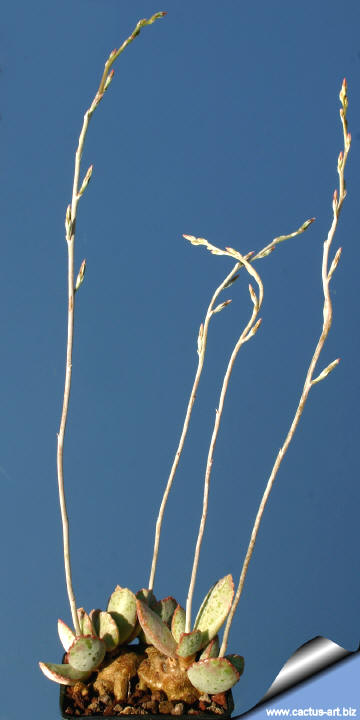 |
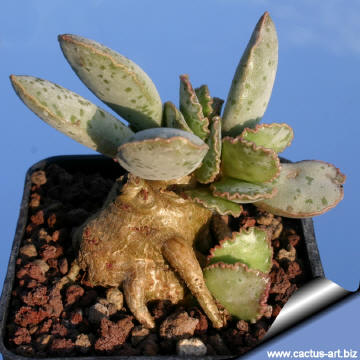 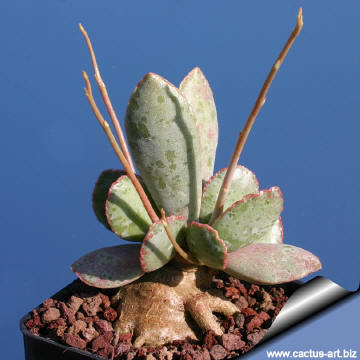 |
|
. |
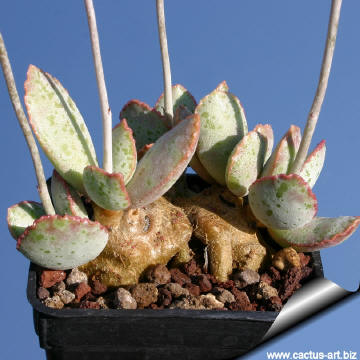 |
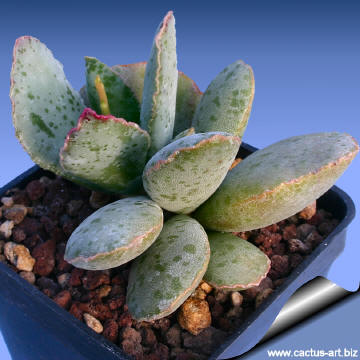 |
|
Advertising
|
|
|
|
|
Family: Crassulaceae (Stonecrop
Family)
Scientific name: Adromischus
schuldtianus ssp. schuldtianus (V. Poelln.) H.E. Moore
In: Baileya, 20 (1): 29, 1976
Section: 5 Longipedunculati
Origin: Central & SW. Namibia( & Northern Cape
South Africa?). This is the most north-westerly Adromischus species.
Habitat: Often filling up cracks on granite hills.
Conservation status: Listed in
CITES appendix 2.
Common Names include: Plover eggs, Knuppelplakkie
Synonyms:
- Cotyledon schuldtiana V Poelnitz 1936
Since this species has highly variable in leaf
markings and colour, it is worth collecting many forms.
A. schuldtianus is separated into three:
- subsp. Schuldtianus
- subsp. brandbergensis
- subsp. juttae
|
|
|
|
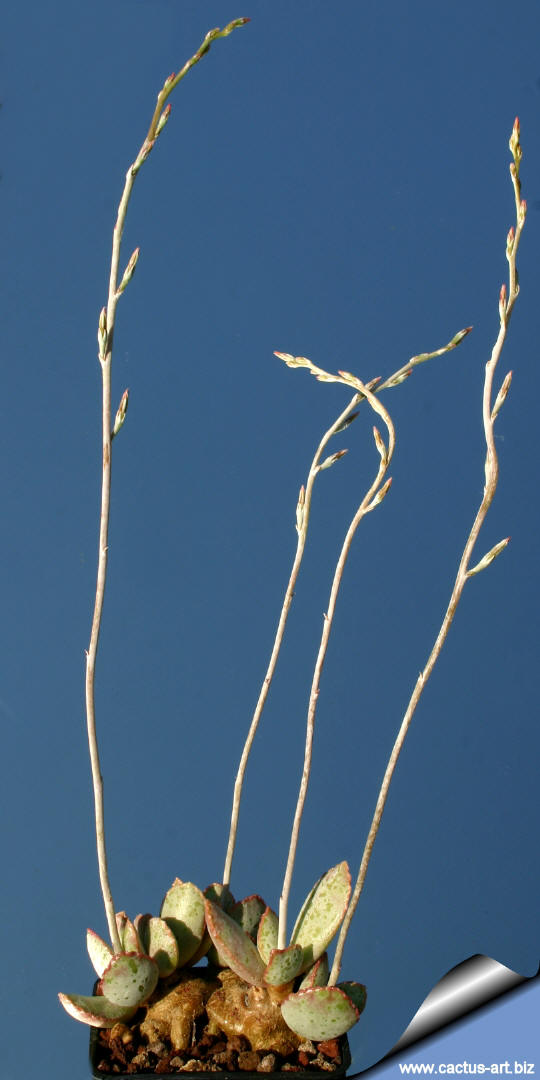
Cultivation:
They prefer well-drained soil in a partially shaded position and require
a minimum temperature 5°C (But hardy down to -7°C for short periods),
with good drainage and dryness in winter to resist the cold. Let the
soil dry between soaking, in the wild, it receives rain mostly in spring
and fall. Must have very dry atmosphere.
They are vulnerable to
mealybugs
and rarely
scale. It
is prone to rotting from the tuberous base or from dried inflorescences.
As the plant matures, the centre becomes bare. When it does, restart it
from side cuttings and throw away the central part.
Propagation:
Usually propagate from single leaves (leaf
cuttings)
or stem cuttings seed propagation is rarely used.
Twist off a leaf and permit it to dry out a couple of days, lay
it on the soil and insert the stem end partially into the soil. The
original leaf should not be removed until it has dried up. Try to keep
the leaf somewhat upright so that the roots are able to grow downward.
If grown in a container, bottom watering by immersing the container is
recommended.


|
|